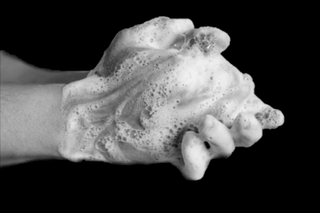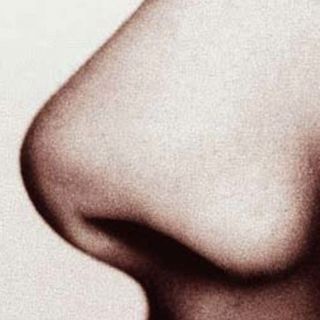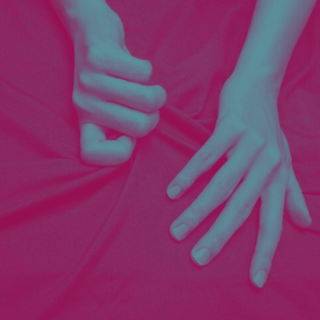
Forget Masks — Handwashing Slows an Epidemic More Effectively: Study
Increasing the number of people at airports who properly wash their hands could slow the global spread of disease by 70%.

If travelers at 10 of the world’s busiest airports thoroughly washed their hands, the spread of infections would slow significantly, a new study has found. The finding offers practical hope to travelers wanting to know how to protect themselves against the coronavirus epidemic.
At any given time, only 20% of people in airports have clean hands — defined as hands that have been washed with both soap and water for at least 15 seconds in the last hour, estimate the team of researchers, who collaborated from universities in the U.S., Spain, and Cyprus. The other 80% of people are contaminating everything they touch; previous research has found people touch their faces 3.6 times an hour and touch common objects roughly with the same frequency, providing ample opportunity to share germs from traces of saliva and mucus.
And then there are people who carry traces of waste on their hands.
While “70% of the people who go to the toilet wash their hands afterwards, the other 30% don’t,” study author Christos Nicolaides, Ph.D., a professor at the University of Cyprus and fellow at the MIT Sloan School of Management, in the U.S., said in a statement. “And of those that do, only 50% do it right.”
If proper handwashing could increase the number of clean hands in the world’s airports from 20% of travelers and staff to 60%, the global spread of disease could slow by 70%.
Hand sanitizer can’t provide the same effect, unfortunately. Handwashing properly physically removes germs from your skin, while hand sanitizer only kills some germs — notably, not flu-like viruses. (That said, hand sanitizer that contains at least 60% alcohol is definitely better than not washing hands at all in situations without access to soap and running water.)
While the research was published in the journal Risk Analysis in December, before the coronavirus (now called COVID-19) outbreak in Wuhan, China, the researchers say their findings are relevant and could help slow to the current global epidemic. As of the time of writing, more than 1,100 people have died from coronavirus and more than 45,000 have been infected globally; the majority of cases and deaths have occurred in China.
Related on The Swaddle:
The Coronavirus Outbreak Has Reached India. Here’s What You Need to Know.
Researchers say a campaign to improve handwashing in 10 of the air travel hubs closest to the outbreak could slow the spread of the disease by 37%. This could be achieved through educational posters, public announcements, and perhaps improved access to handwashing facilities, they say, methods that research has proven to be effective in improving handwashing practices.
“Eliciting an increase in hand-hygiene is a challenge,” Nicolaides says, “but new approaches in education, awareness, and social-media nudges have proven to be effective in hand-washing engagement.”
Both the U.S. Centers for Disease Control and the World Health Organization have advised proper handwashing as the most hygienic and cost-effective way of slowing the spread of disease, including the spread of coronavirus. Public attention, however, remains focused on using masks. But masks offer false reassurance, experts say.
“The advice of the public health authorities in most places is that masks are really not necessary and may actually be unhelpful,” reports Sarah Boseley, health editor for The Guardian. “One of those reasons is because people [wearing masks] will assume they are protected when perhaps they’re not. The advice they do give is to keep well clear of anybody who has got a nasty virus. That’s not necessarily the coronavirus, of course, but if you’re worried, then you should keep your distance. They don’t think the [germ-bearing] particles can travel more than about meter.”
In short? If you’re worried about catching coronavirus, the best things you can do is to try to minimize how often you touch your face and to wash your hands properly — soap, water, with 15 seconds of scrubbing — every hour.
Liesl Goecker is The Swaddle's managing editor.
Related


More Than 5% of the World Lives With Anosmia, or No Sense of Smell
